Nature’s Symphony – Why Birds Sing and What it Means
Anyone who is even slightly interested in birds cannot help but appreciate the sheer beauty of birdsong. Admittedly, if you’re trying to sleep with a window open and the dawn chorus is in full swing, you might not look upon it so favourably in that moment, but nevertheless, birdsong has to be one of the natural wonders of the world.
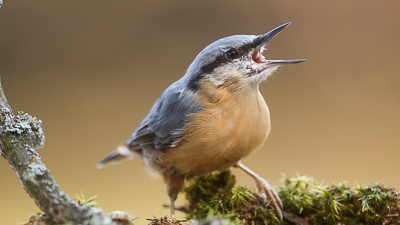
Most people know that birds tend to sing more in the morning than at other times of the day, but there is confusion around why this is, and whether birds always repeat the same song or can learn more than one.
In this blog, we will attempt to answer these questions and more, as we try delve into bird song and what makes it such a wonderful spectacle.
Do All Birds Sing?
Before we get started on some of the more in depth questions, it’s a good idea to address some of the popular queries we hear, including do all birds sing?
The answer to this is ‘it depends’. As in, it depends on what you calling singing! This is because almost all birds vocalise in one way or another, but only around 50% of birds are truly musical in a way we would recognise.
Most of the birds you commonly hear singing in your garden or in the countryside fall into the order of passerines, commonly known as perching birds. The passerines have three suborders, one of which is the passeri, and it is these that are the songbirds.
Although there are around 4,000 species of birds are in the passeri group, they all have one thing in common – a highly developed vocal organ that enables them to be able to sing complicated melodies.
The group includes familiar British songbirds such as Robins, Thrushes, and Blue Tits.
Why Do Birds Sing?
So, we now know that around 50% of the world’s birds sing in a melodic way. But why do they sing at all and what advantages does it bring?
There are two main reasons that birds sing. One is to declare ownership of a territory and the other is to attract a mate.
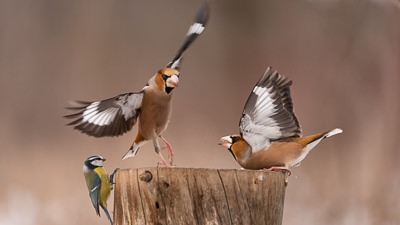
It is for this reason that male birds do the majority of the singing, in the same way male birds tend to have brighter, more colourful plumage. When they sing, they are telling other males ‘stay away, this is my territory’ and they’re telling females ‘look at me, I own a territory with enough food and shelter to safely raise young’.
There are exceptions to this rule. For example, some species are non-territorial and as a result, the male only sings to attract a mate. Also, in a very small number of birds, it is the female that defends a territory and picks the males she wants to breed with, so there is no need for the male bird to sing to communicate that he owns a territory.
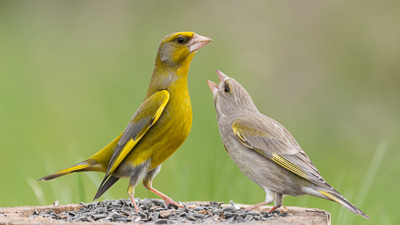
It has long been assumed that because birdsong is about warning off other males and attracting mates that only male birds sing. But this is not true. Studies have found that as many as 71% of female songbirds sing. Although more research is needed to determine exactly why they sing, there is evidence to suggest that female singing helps to strengthen bonds in their relationships. Other female songs may act as warnings about the presence of predators, the research found.
Why Do Birds Mainly Sing in the Mornings?
Birds sing throughout the day, but this is usually just individual birds chirping as they go about their business. It is generally in the morning that you will hear birds singing at the same time. That early morning wake-up call is not called the dawn chorus for nothing and anyone who has laid awake listening to it, or is up and about early enough to hear it in all its glory, will know how loud it can be.
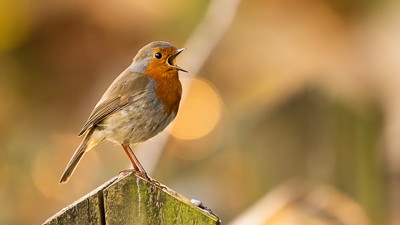
Birds start to sing early for a number of reasons. One of those is the lack of light. Making a lot of noise, as they do when they sing, attracts predators. This is much safer when the light is low as the predators will find it far harder to locate the birds than in daylight.
Also, as birds rely on sight to find food rather than smell, the early mornings are too dark to go off and feed, so it is a great time to sing instead.
Finally, singing in the morning has other benefits for males when attracting mates. Singing loudly at this time, with no food and after a chilly night, tells females that the male is a good prospect who holds a rich territory, and that means she is more likely to pick him to mate with. The effects of this are increased in the morning as the still air and the lack of other noise means birdsong carries much further in the morning that during others times of day.
Often, people report hearing birds sing at night too. Certainly, there are a number of nocturnal species of bird that wait for the evening to sing, including the Nightingale, Nightjars, and Corn Crakes. And of course, owls tend to be nocturnal.
But garden birds often sing in the evening too, triggered by the same lack of light instinct that guards them against predators in the morning. Garden birds sing in the evening for the same reasons they do in the morning – to declare themselves the owner of a territory and to attract mates. They may also vocalise if they spot a predator, although this tends to be an alarm call rather than a song, or if suddenly awoken by a loud noise such as thunder.
Many of us will have also heard songbirds singing in more urban environments very late at night. This is likely to be due to all the artificial lighting that now illuminates our streets. Birds can often be seen perched on the top of streetlamps singing at all hours of the night. However, this is because the street lights fool them into thinking dawn is breaking, rather than for any particular biological or survival function.
How Do Birds Learn to Sing?
How birds learn songs is a fascinating area of behaviour and one that has been the subject to a huge amount of study. William Thorpe pioneered the study into birdsong in the 1950s and one of his key discoveries was that birds raised in a laboratory without contact from adult birds did start to sing, but their songs were abnormal. If, however, birds raised in the same conditions heard recordings of wild adult birds singing, they would develop normal songs.
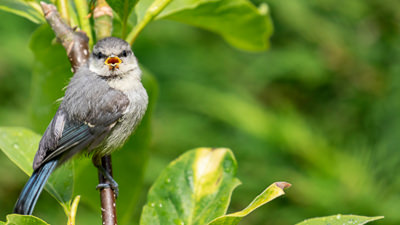
From this, he concluded that there are two components to the development of birdsong. One is an instinctual desire to sing – chicks are born with this and once they are physically able to make vocalisations, they will start to sing. However, there is a learned component as well, and for this, the young chick must hear the songs of its parents if it is to perfect its own song. If it does not, it will never master the song properly.
Wild birds grow up in areas where are there a lot of different species of bird, so one question that arises is why don’t they learn the songs of more than one species? This goes back to the instinctual part of the singing behaviour. Chicks are born with an innate ability to recognise the songs of their own species and discard those of others.
Most songbirds learn to sing within their first 60 days of life. Some learn all the songs they will ever sing within the first year, whereas others are able to continue learning new songs for longer. Chickadees, which are native to America, only ever learns a single song, whereas the Brown Thrasher, also native to the United States and Canada, has a repertoire of more than 2,000 distinct songs.
Learn To Identify Birds by Their Songs
Learning to identify birds by their songs and calls is an extremely rewarding pastime.
Some birds, like the Magpie, have an unusual call which is easy to remember once you’re heard it a few times. It sounds like an old-style football rattle. Others are easily recognised by the way the calls are described, such as the cuckoo sound of the cuckoo and the cawing of a crow.
But others, particularly garden birds, are harder to identify because, beautiful as they are, many of them sound similar.
Although there is no substitute for getting into the great outdoors and watching and listening to birds when trying to learn their calls, a good bird song and bird identifier can be invaluable if you are time-poor.
To get you going, we have created a bird identifier as part of our Spotter’s Guide to Wild Birds on our website which has the calls and songs of the 18 most common birds you’ll find in your garden. This is a great place to start as these are the songs you’ll hear most often. Once you’ve learned these, you can then go on to learn other species that you see and hear les often.
With thousands of birds out there to identify, it is certainly a hobby that could last a lifetime, but one that will give you a huge amount of pleasure over the years.
To see our Spotter’s Guide, click here.
Our recent posts giving advice and guidance on wild birds
Ground Nesting Birds
Ground Nesting Birds In an earlier article, we looked at nesting behaviour in wild birds and how you could use this knowledge to encourage birds to nest in your garden. In that article we talked about birds that nest in [...]
Incredible Journeys – Bird Migration Explained
Reading Time: 11 minutes While many species of bird make the UK their home all year round, some just visit for the summer or winter months and then head off to distance shores for the rest of the year. In this blog, we examine bird migration, taking a deep look into one of nature’s most spectacular phenomena to find out more about what makes it possible.
A Guide to Greenfinches
Reading Time: 9 minutes Greenfinches might not have the range of colours of their Goldfinch cousins, but they are still have a spectacular plummage. They are also viewed as one of the best starter birds you can buy by many aviary keepers because they tend to be fairly hardy, have a good song, and don’t have any specific needs that require the management of an experienced keeper.






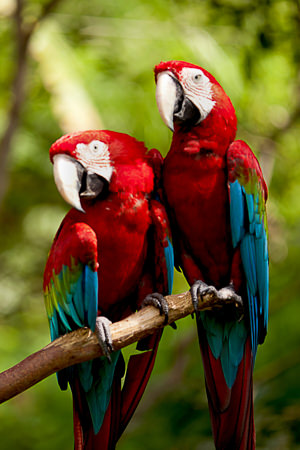
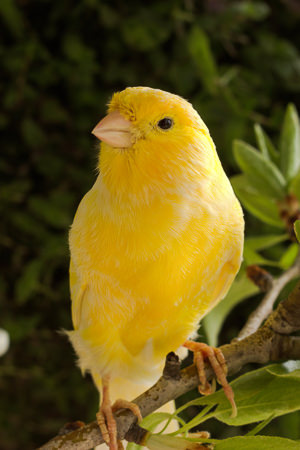
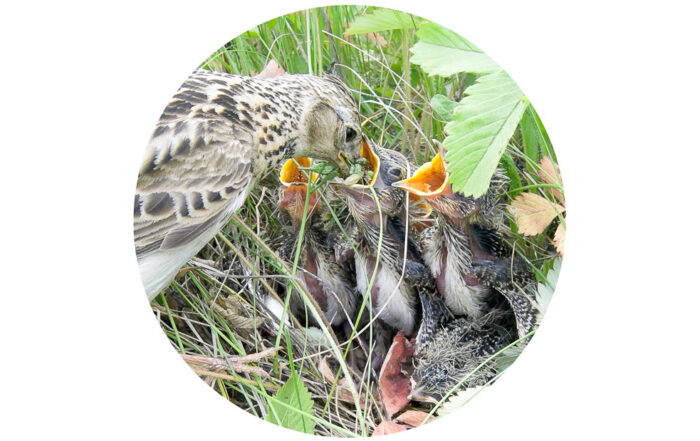

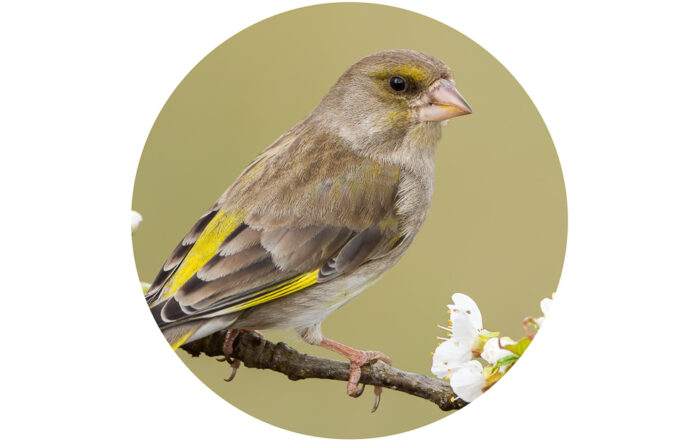
Leave A Comment